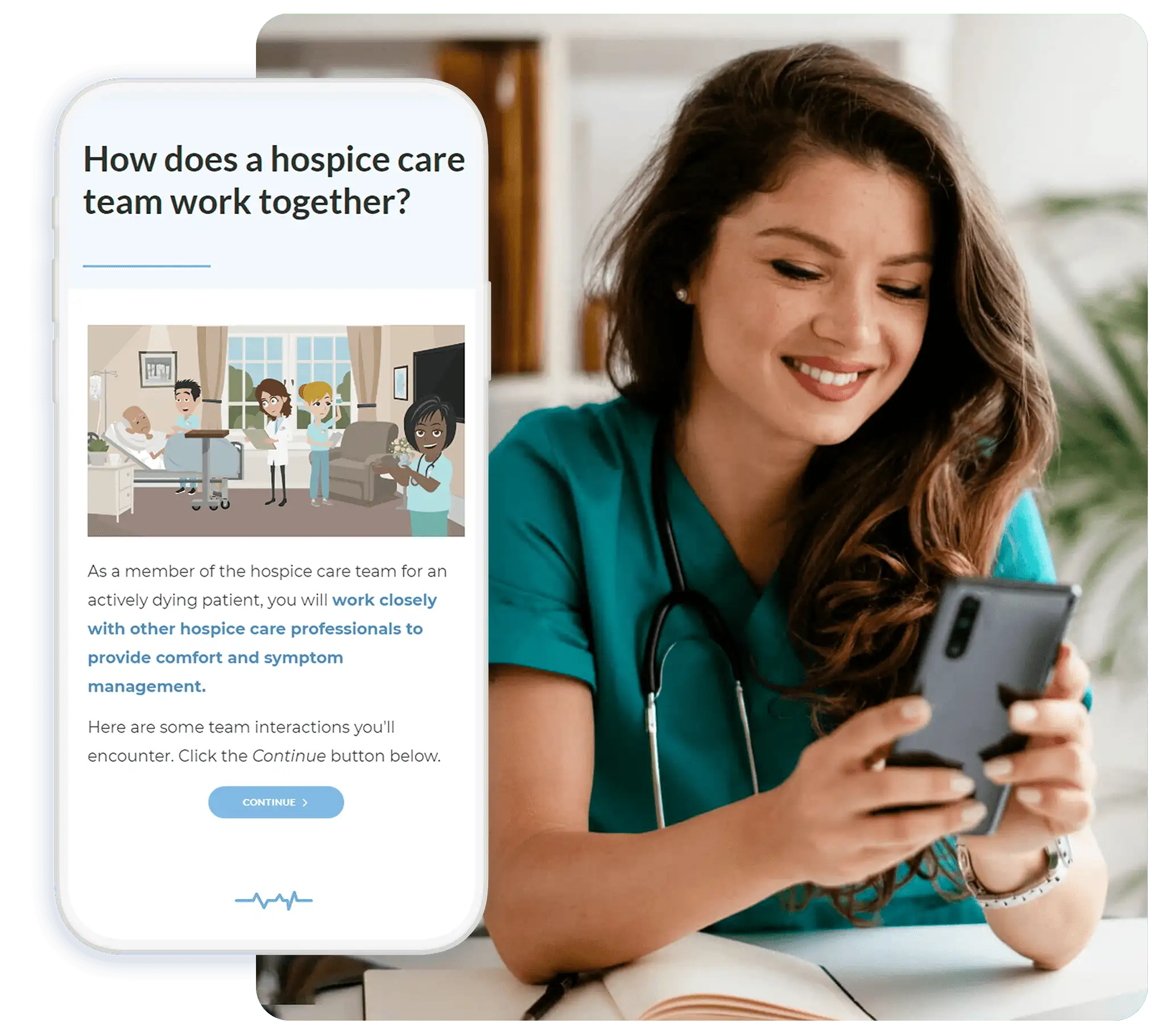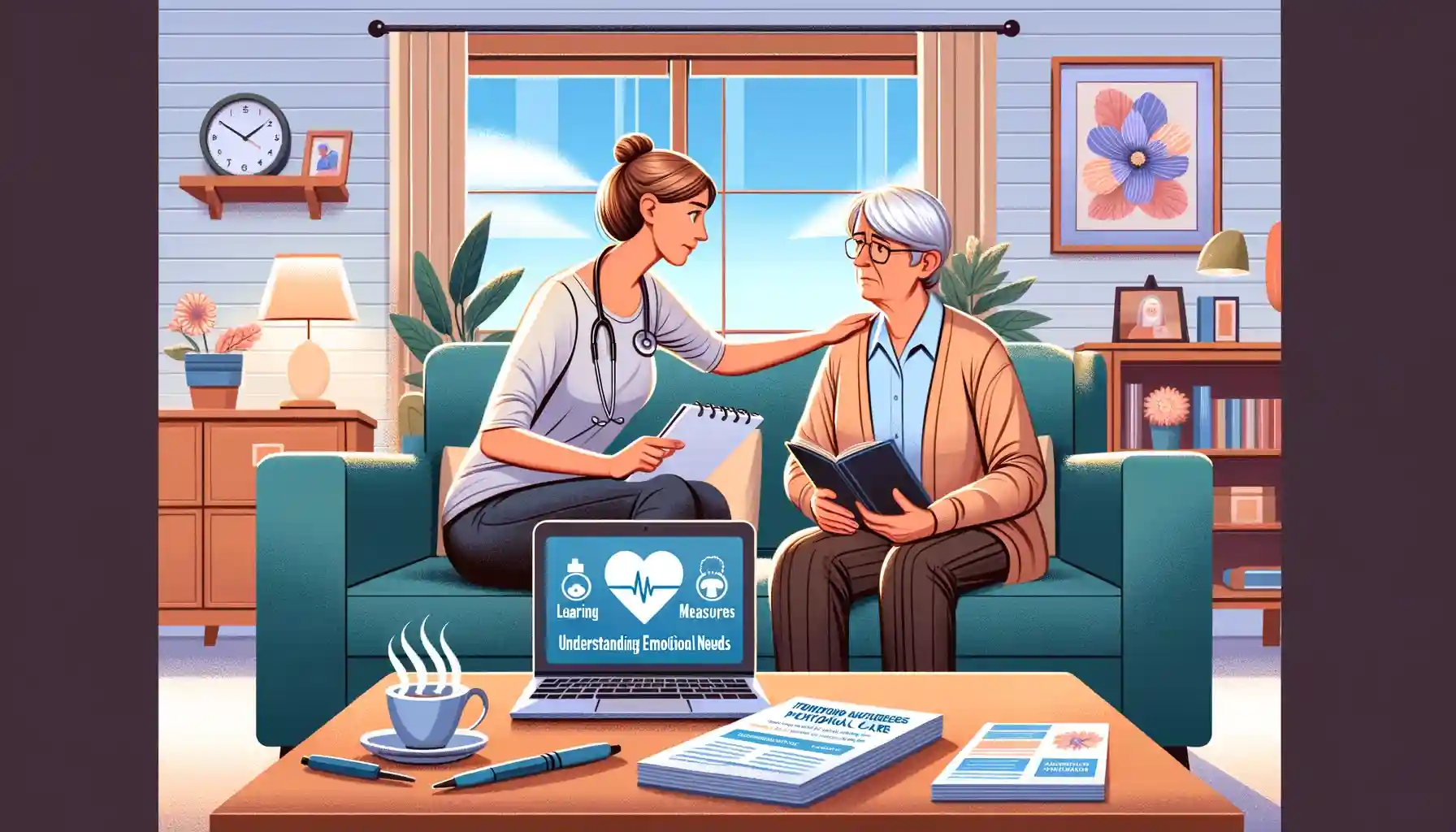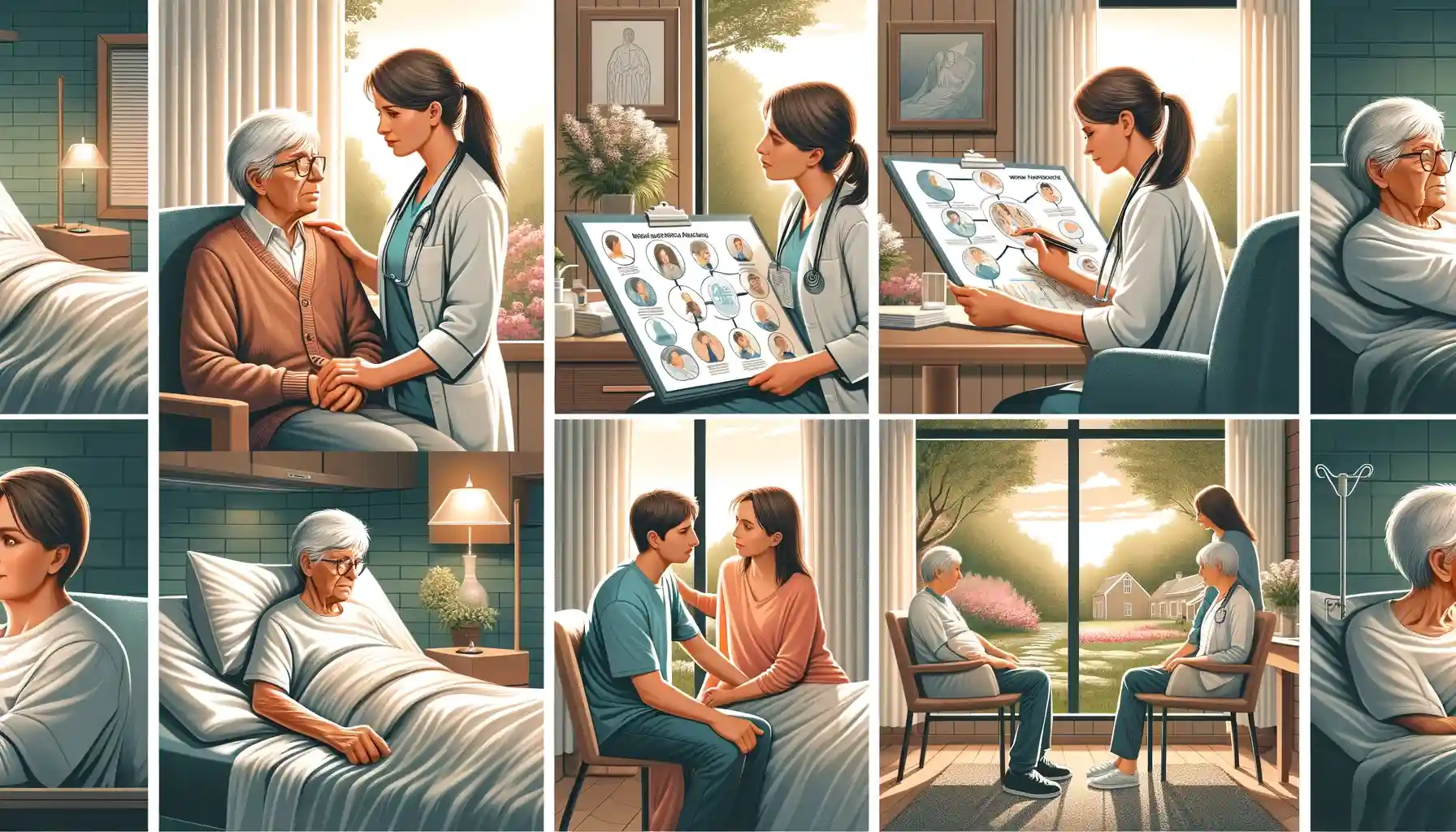Caring for Hospice Patients and Families As Death Approaches
The text, Addressing the Needs of Hospice Patients and Their Families as Death Nears, sheds light on the complex elements of hospice and palliative care, with emphasis on the process of dying. The discussion encompasses the duties and roles of hospice professionals, recognising signs and symptoms of the terminal stage, and the execution of effective measures for comfort and closure. The piece also discusses the emotional support required by both patients and their families in their final moments, emphasizing the comprehensive approach toward end-of-life care.
Skills You’ll Learn
- Recognize the Dying Process: Understand the physical, psychosocial, and spiritual signs indicating a patient is nearing the end of life.
- Interdisciplinary Roles and Responsibilities: Learn the collaborative approach of the care team in providing comfort during the final days.
- Effective Communication: Master the art of sensitive, empathetic communication with patients and families during this challenging time.
- Comfort and Closure Interventions: Identify and implement key strategies to aid patient comfort and emotional closure as death approaches.
- Navigating Prognosis Factors: Gain insights into various factors influencing a patient’s prognosis and how to manage them effectively.
- Post-Death Support: Understand the importance of providing support to families following the death of a loved one.

Caring for Hospice Patients and Families As Death Approaches Course Description
Understanding Hospice and Palliative Care
As you embark on this journey, you’ll understand what hospice and palliative care entail. You’ll explore the nuances of caring for terminally ill patients, recognizing the signs of impending death, and providing the best possible comfort care.
The Dying Process: Signs and Symptoms
Learn to identify the dying process’s physical, emotional, and spiritual signs. This knowledge is crucial in preparing yourself, the patient, and their family for the final days, ensuring a peaceful and dignified transition.

CONTINUA LEARNING
Simplify Your Hospice Team’s Training and Skill Building
A complete online solution for your agency: more than 125 hospice courses, caregiver in-services, training plans, and more.
Roles and Responsibilities
Dive into the interdisciplinary nature of hospice care, where medical professionals, caregivers, and family members collaborate to provide holistic care. Understand each member’s role in the hospice team and how they contribute to the patient’s well-being.
Comfort and Closure Interventions
Discover the five key interventions that can significantly impact patients’ comfort as they approach death. These interventions address physical discomfort and emotional needs, facilitating a smoother transition for the patient and their loved ones.

Navigating Emotional Terrain
The emotional aspect of hospice care cannot be overstated. Learn to provide emotional support and comfort to the patient and their family, helping them navigate this challenging time with compassion and understanding.
Post-Death Care
Understand the importance of caring for the family following the death of a loved one. Learn strategies to help them cope with their loss and start the healing process, ensuring that they receive the necessary support during this difficult time.

How to Start with Caring for Hospice Patients and Families As Death Approaches
Caring for Hospice Patients and Families As Death Approaches is designed for healthcare professionals, including nurses, nurse aides, social workers, and nursing home administrators, seeking to enhance their skills in providing compassionate end-of-life care.
Caring for Hospice Patients and Families As Death Approaches is part of a yearly subscription to Continua Learning. Continua Learning delivers over 200 hospice training courses and aide in-services in a mobile solution for easy compliance and tracking it all from one place. Contact us to set up a demo for your agency today! Elevate your expertise. Enhance patient satisfaction.
Caring for Hospice Patients and Families As Death Approaches Continuing Education
Caring for Hospice Patients and Families As Death Approaches offers 1 Contact Hour for Nursing, Certified Nursing Assistants, Home Health, and Hospice Aides. Continua Learning is an approved provider of CEUs from the following boards:
- Florida Board of Nursing
- Florida Board Of Occupational Therapy
- Florida Board Of Speech – Language Pathology And Audiology
- Florida Board Of Nursing – Certified Nursing Assistants
Course Reviewer
Kathleen Webster, BSN, RN, CRRN, brings nearly four decades of nursing experience to her role. Earning her BSN in 1984 and CRRN in 2012, she began her career in acute rehabilitation and later specialized in hospice and home health care for over 25 years.
A seasoned educator, Kathleen has authored numerous eLearning courses and led in-service training programs. As a former community care program director, she trained in-home aides and is committed to inspiring quality care and compassion in hospice and home care.
Frequently Asked Questions
What is the standard of care provided in the course for patients nearing death?
The course outlines the highest standard of care for terminally ill patients, focusing on ensuring comfort in their final days. It covers medical and emotional support, tailored to meet each patient’s and their family’s unique needs.
How does the course address the needs of families of dying patients?
Our course emphasizes the importance of supporting the patient and their family. It provides strategies for healthcare professionals to offer emotional and spiritual comfort to families, helping them navigate the complexities of impending death.
What role does palliative medicine play in the course content?
Palliative medicine is a key focus, with the course covering its principles and practices in-depth. This includes managing symptoms, providing emotional support, and ensuring patients’ highest quality of life in their final days.
How does the course prepare hospice professionals to provide comfort measures for actively dying patients?
The course provides practical guidance on comfort measures and interventions for actively dying patients. This includes managing physical symptoms, providing emotional and spiritual support, and ensuring a peaceful environment for the patient and their family.
What kind of support does the hospice care team offer after the actual death of a patient?
Post-death, the hospice care team continues to support the family, offering counseling, grief support, and assistance with practical matters. The course covers these aspects to ensure comprehensive care beyond the patient’s death.
How does the course equip hospice and palliative care professionals to handle the emotional aspects of caring for a dying loved one?
Our course provides tools and techniques for professionals to manage their emotions while offering compassionate care. It emphasizes the importance of self-care and professional support systems to maintain emotional well-being during these challenging times.

